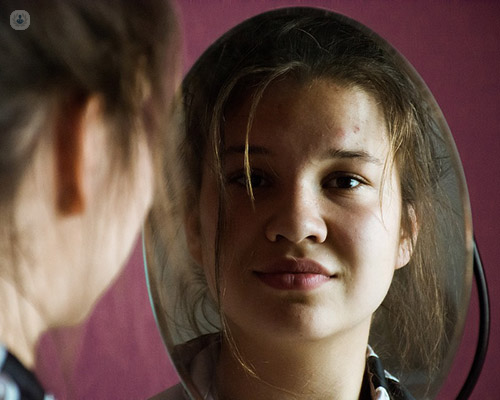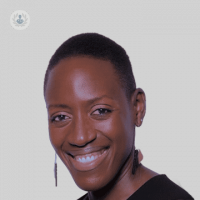Do certain foods really cause acne?
Written by:Top Doctors was fortunate enough to be able to quiz highly accomplished and trusted London-based consultant dermatologist, Dr Marisa Taylor, who, in this article below, reveals those all important causes of acne, whether or not certain foods actually directly cause acne, and tells us when the skin and self-confidence condition is considered to be severe.

What are the main causes of acne?
Acne is a disorder of a mixture between the hair on our skin and oil glands. It is an inflammatory process. There are several underlying causes of acne. They include the following:
- puberty
- hormonal changes
- endocrine tumours
- polycystic ovarian disease
If people develop acne later in life who have never had it before, then it is essential to delve a little deeper to see if they are suffering from an endocrinological problem that needs to be sorted out. Other things such as medication can also cause acne, as well as contraceptive devices. People often ask me if food causes acne. So, while foods cannot directly cause acne, they can certainly worsen it. Milk can cause a worsening of acne, as well as food that contains sugar.
When is acne considered to be a severe condition?
What makes acne more severe is the actual specific area of the body that it affects. So, if more of your face is affected compared to someone who has it only on a cheek, or on their jawline, it is considered to be a severe case of acne.
The types of lesions also help to categorise the severity of one’s acne. If you have blackheads or whiteheads on the skin, this is certainly less severe when compared to someone who has deep, painful boils and nodules on the skin.
The presence of scarring is the third thing that we look at it when determining the severity. The final thing we take into consideration when talking about acne’s severity is the patient themselves and how they feel about their acne. Acne is considered to be severe if a person’s acne is affecting them at work and in their personal life.
Is immediate medical attention ever required for acne? If so, when?
Yes. Acne can actually be a part of a systemic inflammatory condition, where patients can have lots and lots of spots that are extremely painful, accompanied by fever, joint pain, as well as bone pain. This requires immediate medical attention with a dermatologist.
How exactly does acne affect one’s skin?
Primarily, people can suffer from oily skin, uneven pigmentation, and scarring.
What are the most effective treatment options for acne?
The most effective treatments for acne have to be tailored to the severity of the acne. Less severe cases of acne can get away with topical treatments. The mainstay of acne treatment, unless you are pregnant or breastfeeding, is topical retinoid.
This helps smoothen the skin, and prevents new lesions from appearing. When we talk about mild to severe acne, we need to give the patient oral antibiotics.
Dr Marisa Taylor is a highly esteemed and skilled London-based consultant dermatologist who can help treat your acne. Contact her today via her Top Doctors profile to book a consultation with her.



